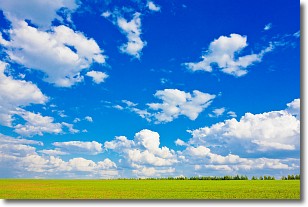Weather Alert in Montana
Flood Advisory issued April 28 at 2:51AM MDT until April 28 at 12:15PM MDT by NWS Billings MT
AREAS AFFECTED: Carbon, MT; Stillwater, MT; Sweet Grass, MT
DESCRIPTION: Heavy rainfall fell in the lower foothills Sunday evening. Additional light to moderate rainfall will likely result in minor flooding through this morning in these already saturated areas. This advisory covers areas from the Yellowstone river south into the Beartooth mountains. * WHAT...Minor flooding of small streams and low lying areas caused by excessive rainfall is expected. * WHERE...A portion of south central Montana, including the following counties, northwestern Carbon, southern Stillwater and central Sweet Grass. * WHEN...Until 1215 PM MDT Monday. * IMPACTS...Minor flooding in low-lying and poor drainage areas. Rises in small streams and normally dry coulees. Water may flow over roadways. * ADDITIONAL DETAILS... - At 244 AM MDT, 1 to 3 inches of rain has fallen since last evening in the advisory area. Additional light to moderate rainfall is forecast through this morning that will likely produce minor flooding within the advisory area. - Additional rainfall amounts up to 1 inch are expected over the area, with locally heavier amounts possible. - Some locations that will experience flooding include... Red Lodge, Columbus, Joliet, Absarokee, Fishtail, Roscoe, Dean, Luther, Cooney Reservoir State Park, Nye, Roberts, Fox, Boyd and Mc Leod. - http://www.weather.gov/safety/flood
INSTRUCTION: Turn around, don't drown when encountering flooded roads. Do not drive on or attempt to cross flooded roads, find an alternate route. Roads and driveways may be damaged or washed out in places. Be especially cautious at night when it is harder to recognize the dangers of flooding. Please report observed flooding to local emergency officials and request they pass the information to the National Weather Service in Billings.
Want more detail? Get the Complete 7 Day and Night Detailed Forecast!
Current U.S. National Radar--Current
The Current National Weather Radar is shown below with a UTC Time (subtract 5 hours from UTC to get Eastern Time).

National Weather Forecast--Current
The Current National Weather Forecast and National Weather Map are shown below.

National Weather Forecast for Tomorrow
Tomorrow National Weather Forecast and Tomorrow National Weather Map are show below.

North America Water Vapor (Moisture)
This map shows recent moisture content over North America. Bright and colored areas show high moisture (ie, clouds); brown indicates very little moisture present; black indicates no moisture.

Weather Topic: What are Contrails?
Home - Education - Cloud Types - Contrails
 Next Topic: Cumulonimbus Clouds
Next Topic: Cumulonimbus Clouds
A contrail is an artificial cloud, created by the passing of an
aircraft.
Contrails form because water vapor in the exhaust of aircraft engines is suspended
in the air under certain temperatures and humidity conditions. These contrails
are called exhaust contrails.
Another type of contrail can form due to a temporary reduction in air pressure
moving over the plane's surface, causing condensation.
These are called aerodynamic contrails.
When you can see your breath on a cold day, it is also because of condensation.
The reason contrails last longer than the condensation from your breath is
because the water in contrails freezes into ice particles.
Next Topic: Cumulonimbus Clouds
Weather Topic: What are Cumulus Clouds?
Home - Education - Cloud Types - Cumulus Clouds
 Next Topic: Drizzle
Next Topic: Drizzle
Cumulus clouds are fluffy and textured with rounded tops, and
may have flat bottoms. The border of a cumulus cloud
is clearly defined, and can have the appearance of cotton or cauliflower.
Cumulus clouds form at low altitudes (rarely above 2 km) but can grow very tall,
becoming cumulus congestus and possibly the even taller cumulonimbus clouds.
When cumulus clouds become taller, they have a greater chance of producing precipitation.
Next Topic: Drizzle
Current conditions powered by WeatherAPI.com




